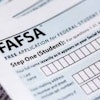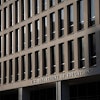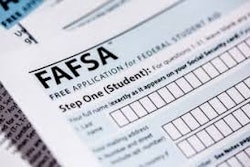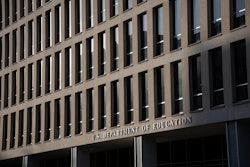Future Uncertain for Howard Pharmacy Students
Accreditation body puts program on probation
By David Pluviose
WASHINGTON
Students in Howard University’s pharmacy program are growing increasingly nervous about what their degrees will be worth when they graduate, as the Accreditation Council on Pharmacy Education (ACPE) has put the school’s Pharm.D. program on probation. The probationary status extends to June 30, 2007, when the council will perform another review. Thus, current enrollees will graduate from a program that is accredited, at least for now.
“It’s a tough spot, but they told us they’ll get the necessary things done,” says first-year pharmacy student Reggie Varun. “There’s no guarantee. They said if worse comes to worst, people who are in the program should be able to graduate and sit down for their boards.”
During a series of rancorous town hall meetings, Varun and other outraged students questioned Howard administrators about why the pharmacy program hasn’t seen the benefits of several successful capital campaigns.
“I don’t think [Howard] has a money problem,” Varun says. “I’m from out of state, spending [about] $30,000 a year, and you’re going to tell me you’re on probation? It’s already tough on us. It doesn’t help you when the school’s not doing anything.”
The pharmacy program, launched in 1868, currently enrolls 367 students and graduates between 65 and 70 pharmacists annually, says Dr. Richard A. English, Howard’s provost and chief academic officer. The first student to graduate from Howard University received a Pharm.D. degree in 1870, and Howard was the first historically Black college or university to create such a program. Today, Hampton University, Xavier University of Louisiana, Texas Southern University and Florida A&M University also have pharmacy schools.
The ACPE put Howard on notice for noncompliance with six of the council’s 30 benchmarks, says English. Among the problems, the accreditation body found that Howard had never approved the by-laws of the College of Pharmacy, Nursing and Allied Health Sciences. English says the by-laws will be presented to the board of trustees at their next meeting. H. Patrick Swygert, Howard’s president, says wide-ranging plans had been in the works to fix some of the pharmacy department’s problems. But being placed on probation has forced the university to expedite the changes.
According to ACPE, Howard’s pharmacy students are not progressing adequately towards their degrees — 75 current students failed to keep pace with their class. English says the university is responding by taking “strategic steps” to improve matriculation. Additionally, ACPE says there aren’t enough faculty to properly deliver the school’s curriculum once it is fully revamped and brought up to ACPE standards. Also, Howard’s pharmacy school has inadequate lecture hall and classroom facilities and is also lacking a detailed statement of financial health. English says all the issues will be corrected, and notes that the revised 2007 fiscal year budget allows for “a phase-in plan to hire the additional faculty needed in the next few years.”















